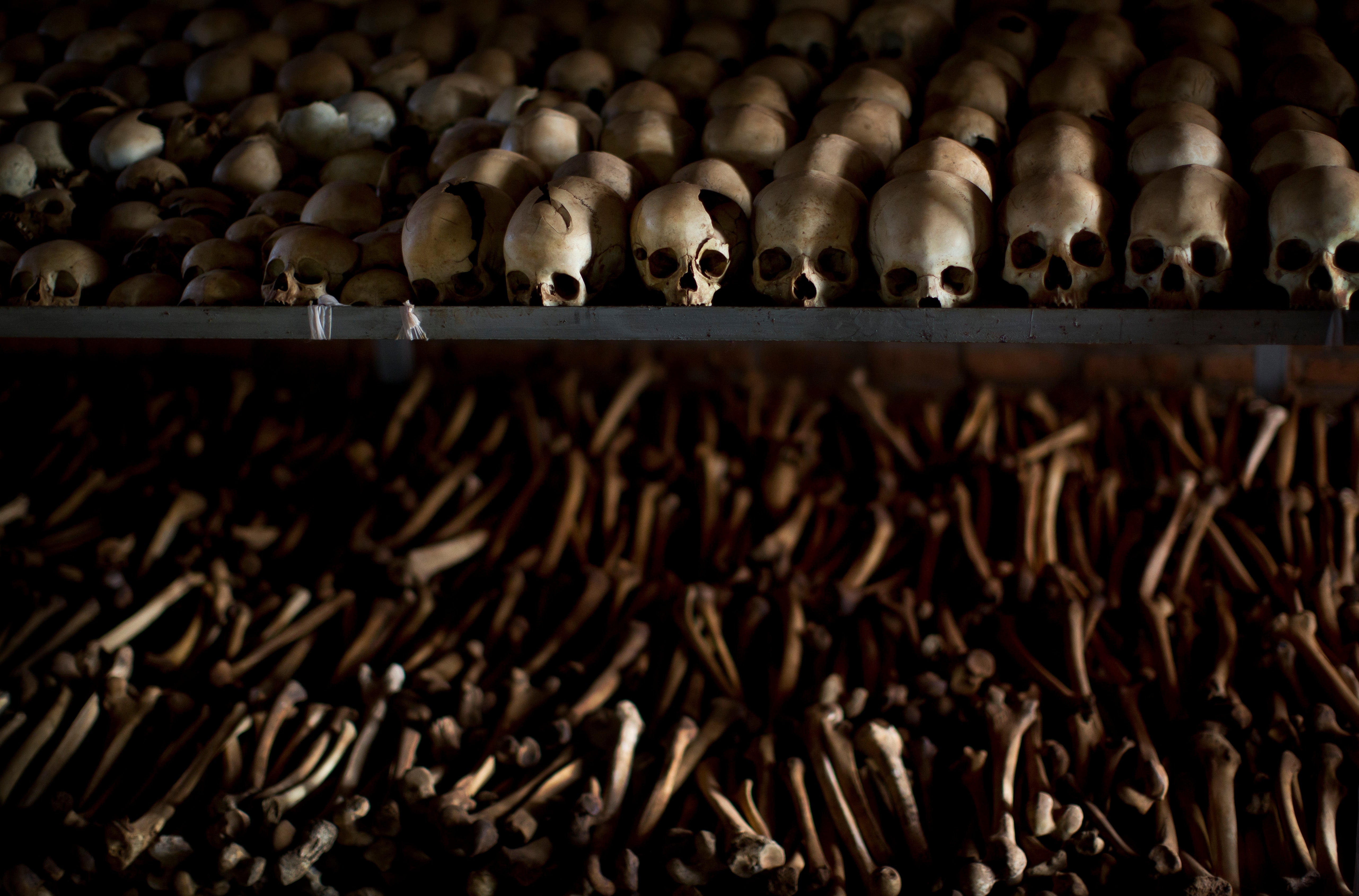Rwandan genocide suspect enters not guilty pleas at UN court
An elderly former radio station owner has appeared in a United Nations courtroom where his lawyer entered not guilty pleas to allegations that he armed militias with machetes and other weapons and incited them to take part in Rwanda’s 1994 genocide

Your support helps us to tell the story
From reproductive rights to climate change to Big Tech, The Independent is on the ground when the story is developing. Whether it's investigating the financials of Elon Musk's pro-Trump PAC or producing our latest documentary, 'The A Word', which shines a light on the American women fighting for reproductive rights, we know how important it is to parse out the facts from the messaging.
At such a critical moment in US history, we need reporters on the ground. Your donation allows us to keep sending journalists to speak to both sides of the story.
The Independent is trusted by Americans across the entire political spectrum. And unlike many other quality news outlets, we choose not to lock Americans out of our reporting and analysis with paywalls. We believe quality journalism should be available to everyone, paid for by those who can afford it.
Your support makes all the difference.An elderly former radio station owner appeared Wednesday in a United Nations courtroom where his lawyer entered not guilty pleas to allegations that he armed militias with machetes and other weapons and incited them to take part in Rwanda's 1994 genocide.
It was the first time Félicien Kabuga had appeared before the U.N.’s International Residual Mechanism for Criminal Tribunals since he was transferred to The Hague following his arrest outside Paris in May.
Kabuga, 85, sat in a wheelchair in court flanked by two guards. He is charged with crimes including genocide, complicity in genocide, incitement to genocide, persecution and extermination. He faces a maximum life sentence if convicted.
Kabuga did not respond in court to the charges, but his lawyer, Emmanuel Altit, asked Presiding Judge Iain Bonomy to “consider his non-response as a plea of not guilty on all counts.” Bonomy formally entered not guilty pleas.
Kabuga appeared to listen intently, sometimes fidgeting with the blue medical face mask he wore, as a court official read out his 18-page indictment.
Prosecutor Serge Brammertz said his team aims to file a streamlined, amended indictment by mid-January as his staff work to track down witnesses amid the coronavirus pandemic.
The mechanism, which has branches in The Hague and the Tanzanian city of Arusha, was set up to deal with cases remaining from two temporary tribunals that prosecuted crimes from the Rwandan genocide and the Balkan wars.
Kabuga was sent to The Hague instead of Arusha so that he could undergo a detailed medical assessment amid concerns about his health.
The mass killing of Rwanda’s Tutsi minority was ignited on April 6, 1994, when a plane carrying President Juvénal Habyarimana was shot down and crashed in Kigali, killing the leader who, like the majority of Rwandans, was an ethnic Hutu.
The Tutsi minority was blamed for downing the plane. Bands of Hutu extremists began slaughtering the Tutsi, with support from the army, police, and militias. The genocide left dead 800,000 Tutsis and moderate Hutus who tried to protect them.
According to his indictment, first issued in 1997 and updated in 2011, Kabuga and others operated the RTLM radio station and used its broadcasts to inflame ethnic hatred against Tutsis. He also is accused of instructing and assisting members of the so-called Interahamwe militia responsible for killing people identified as Tutsis in the Kigali, Kibuye and Gisenyi prefectures of Rwanda.
He also allegedly established a National Defense Fund to provide financial and logistical support to the Interahamwe and is accused of founding a group called Kabuga’s Interahamwe.